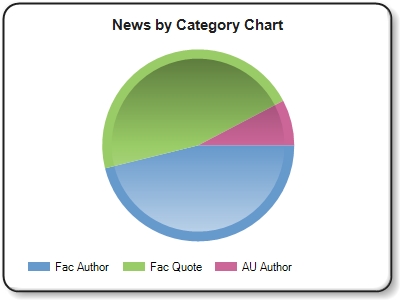Top Story
| Map in Widely Used U.S. History Textbooks Refers to Enslaved Africans As 'Immigrants,' CBS News Analysis Finds |
| Ibram X. Kendi, director of the Antiracist Research & Policy Center, worked with CBS Morning News to analyze high school history textbooks for how they teach topics in American history such as slavery and the Civil War. Kendi said, “I can see why so many students get to college and they're like, ‘Why didn't we learn this in high school?' because it isn't in these texts. When we instruct our children, we should be instructing them in truth.” (2/19) |
Faculty Authors
| Our Founders Didn't Intend for Pardons to Work Like This |
| Jeffrey Crouch, assistant professor in the School of Professional and Extended Studies, wrote an article for The Atlantic about the presidential pardoning process. Crouch wrote, “The country's Founders did not intend for the clemency power to be used as a prize.” (2/21) |
| Stop Calling Far-Right Terrorists 'Crazy' |
| Cynthia Miller-Idriss, professor of sociology, wrote an article for Politico about the dangers of labelling far-right terrorists as ‘crazy'. Miller-Idriss wrote, “the more we write off terrorists who are motivated by far-right ideologies as ‘crazy', the more we are at risk of glossing over the complexity of how people are radicalized.” (2/20) |
| Conservative Islamic Views Are Gaining Ground in Secular Bangladesh and Curbing Freedom of Expression |
| Anders C. Hardig, professorial lecturer in the School of International Service, wrote an article for The Conversation about the dominance of conservative Islamic ideals in Bangladesh. Hardig wrote, “In truth, the shift in Islam's role in politics and society really began as early as 1975 when Bangladesh's founder and first president, Sheikh Mujibur Rahman, was assassinated in a military coup.” The article appeared in 10 outlets, including The Washington Post. (2/19) |
| Hope in the Time of Parasite | Kirkus Reviews |
| Patricia Park, assistant professor of literature, wrote an essay for Kirkus about the success of the film “Parasite.” “I could have passed out when filmmaker Bong Joon Ho walked up to the Academy Awards stage not once, not twice, but four times to collect his well-earned Oscars for Parasite. . . I'm not even a Korean national, but Parasite's fete feels like a collective win for all of us—in America, in the world—of Korean descent,” Park wrote. (2/20) |
| Trump Supporters Have Little Trust in Societal Institutions |
| Assistant Professor of Communication Ericka Menchen-Trevino co-wrote an article for The Conversation about how Trump supporters distrust societal institutions. Menchen-Trevino and her co-authors wrote, “We found that Trump supporters had significantly lower trust in journalists, professors and scientists – the more stereotypically liberal institutions – than supporters of the Democratic candidates.” (2/18) |
Expertise
| American University Experts Comment on Election 2020 and Democratic Primary Debates |
| Distinguished Professor of Public Affairs James Thurber spoke to The Wall Street Journal about Michael Bloomberg's social media strategy. Thurber said, “It's classic AstroTurf tactics. When you have unlimited resources the way Bloomberg seems to, you can do that.” Allan Lichtman, distinguished professor of history, spoke to the Voice of America and Amy Dacey, executive director of the Sine Institute for Policy and Politics, spoke to AP Radio about the Democratic presidential debate. Carrie Giddins, instructor of public affaris, spoke to the Los Angeles Times about the Nevada Caucases. In addition, Bill Sweeney, distinguished practitioner at the School of Public Affairs, spoke to AFP about the ways in which billionaire candidates have changed the Democratic presidential race. The AFP article appeared in seven media outlets, including Yahoo News. (2/19, 2/20, 2/21) |
| White Supremacist Propaganda on University Campuses Doubled in 2019 |
| Sherri Williams, assistant professor of communication, spoke to Diverse: Issues in Higher Education about the rise of white supremacist propaganda on college campuses, and how her project, “Black on Campus,” helps to combat it. Williams said, “These colleges and universities need to start making institutional changes and finding ways to not just continue to deal with these incidents on a case-by-case basis or having one or two forums. They need to start asking ‘how can this university show that they are serious about parity and equality.'” (2/17) |
| Targeted Violence Increases Around Presidential Elections, Research Shows |
| Joseph Young, professor in the School of Public Affairs and the School of International Service, spoke to Sinclair Broadcasting Group about the rise in targeted violence that occurs around presidential elections. Young said, “The thing that worries me the most is if one side loses in the election and claims the process isn't fair, that they would be quite likely to turn to noninstitutional means to resolve it.” The article appeared in 24 Sinclair-affiliated outlets, including WJLA. (2/14) |
| Human Trafficking Awareness Campaigns Are Feeding a Dangerous Myth |
| Washington College of Law Professor Janie Chuang spoke to HuffPost about the ways anti-trafficking campaigns perpetuate myths. Chuang said, “Nobody wants to view trafficking as embedded in how our global economy is structured. It's more convenient to view it as the product of individual criminal behavior.” (2/17) |
| Democrats Fear Rule of Law Crumbling Under Trump |
| Robert Tsai, professor in the Washington College of Law, spoke to The Hill about fears that Donald Trump is eroding the rule of law. Tsai said, “Long-standing norms about what's necessary for the rule of law to survive— the very kinds of democratic norms we demand of other countries— are undermined by a prosecutor's office who takes partisan considerations into charging decisions and sentencing recommendations.” (2/16) |
Bonus Clip
| Utah Women Had the Right to Vote Long Before Others – and Then Had it Taken Away |
| Katherine Kitterman, Ph.D. candidate in history, wrote an article for The Washington Post about women's suffrage in Utah. Kitterman wrote, “A full 50 years before the 19th Amendment became national law, female citizens in Utah made history as the first to exercise equal suffrage rights.” Kitterman also spoke to KUER-FM's RadioWest about women's suffrage in Utah. (2/14) |
|


